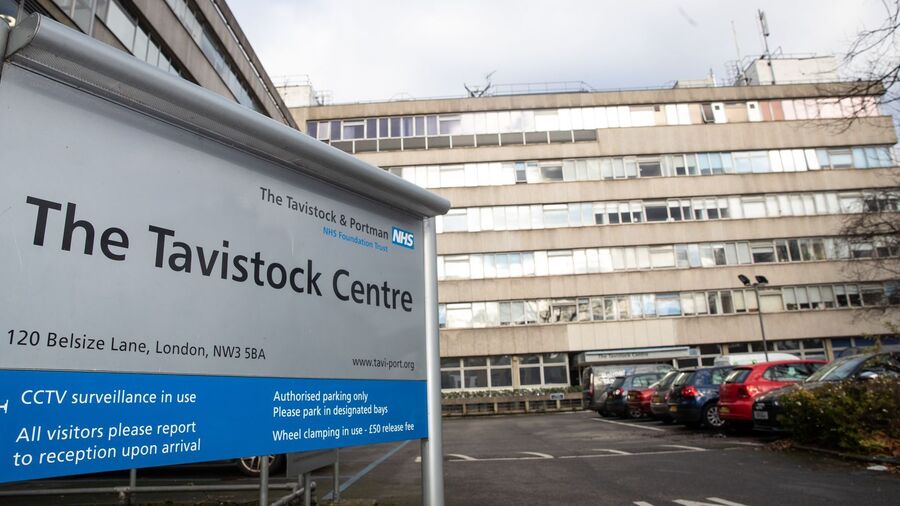Children will no longer be prescribed puberty blockers at gender identity clinics, NHS England has confirmed.
Puberty blockers, which pause the physical changes of puberty such as breast development or facial hair, will now only be available to children as part of clinical research trials.
The government said it welcomed the “landmark decision”, adding it would help ensure care is based on evidence and is in the “best interests of the child”.
It follows a public consultation on the issue and an interim policy, and comes after NHS England commissioned an independent review of gender identity services for children under 18 in 2020.
The review followed a sharp rise in referrals to the Gender Identity Development Service (GIDS) – a specialised service for young people who experience difficulties in the development of their gender identity – run by the Tavistock and Portman NHS Foundation Trust, which is closing at the end of March following repeated scrutiny.
In 2021/22, there were more than 5,000 referrals to GIDS, compared to just under 250 a decade earlier.
Dr Hilary Cass, who led the review, published an interim report in February 2022 saying there was a need to move away from one unit and recommended regional options be available to better support children.
She also said there was a lack of long-term evidence on what happens to young people prescribed blockers – adding that GIDS had not gathered routine and consistent data, meaning it was “not possible to accurately track the outcomes and pathways that children and young people take through the service”.
After Tavistock closes, two new NHS services will open in early April, situated in Great Ormond Street Hospital, London, and Alder Hey Children’s Hospital in Liverpool.
The NHS said children attending these clinics will be supported by experts in neurodiversity, paediatrics and mental health, “resulting in a holistic approach to care”.
Around 5,000 children and young people are currently on the waiting list for referral into the new clinics, with 250 patients expected to be transferred to them when they are open.
Currently there are fewer than 100 children on puberty blockers, who will continue their treatment at Leeds and University College London Hospital.
Puberty blockers can be used to delay the development of physical characteristics which can make someone look male or female, allowing transgender young people to explore their gender identity and weigh up medically transitioning.
Taking them early in puberty may mean less treatment or surgery in the future. However, critics have raised concerns over issues including consent, mental health risks and bone density development.
Health Minister Maria Caulfield said: “We have always been clear that children’s safety and wellbeing is paramount, so we welcome this landmark decision by the NHS.
“Ending the routine prescription of puberty blockers will help ensure that care is based on evidence, expert clinical opinion and is in the best interests of the child.”
The consultation on the future of such services received more than 4,000 responses. Around a quarter were from members of the public, while 22% were from patients, 21% from parents, 10% from trans adults and 5% from clinicians.
John Stewart, NHS England’s national director of specialised commissioning, said the responses were “polarised” in line with the debate around puberty blockers.
Mr Stewart said: “Many people said the policy didn’t go far enough in terms of still allowing potential access [to puberty blockers] through research, and others saying clearly they disagreed fundamentally and that these should be routinely available to everyone who believes they need it.”
Transgender youth charity Mermaids described the announcement as “deeply disappointing” and accused the NHS of “failing trans youth”.
A spokesperson added: “Those currently prescribed puberty blockers won’t see any changes to their treatment, and this is a pause on prescribing – not a ban.
“It’s also important to note that puberty blockers can be just one possible part of a young person’s gender journey. However, this news still comes as a blow and will deeply affect our communities.”
Former prime minister Liz Truss “welcomed” NHS England’s decision ahead of her Health and Equality Acts (Amendment) Bill, which is up for its second reading on Friday.
The bill includes a ban on the prescription of body-altering hormones to children questioning their sex, both privately and on the NHS.
The most commonly used puberty blockers suppress the production of hormones, including testosterone and oestrogen.
NHS England hopes to have a study into their use in place by December – with the eligibility criteria yet to be decided.
Source: https://sott.net/en489744
Disclaimer: We at Prepare for Change (PFC) bring you information that is not offered by the mainstream news, and therefore may seem controversial. The opinions, views, statements, and/or information we present are not necessarily promoted, endorsed, espoused, or agreed to by Prepare for Change, its leadership Council, members, those who work with PFC, or those who read its content. However, they are hopefully provocative. Please use discernment! Use logical thinking, your own intuition and your own connection with Source, Spirit and Natural Laws to help you determine what is true and what is not. By sharing information and seeding dialogue, it is our goal to raise consciousness and awareness of higher truths to free us from enslavement of the matrix in this material realm.
 EN
EN FR
FR



























So the whole medic(rimin)al scam is going on somewhere else, under another nickname, to keep away public scrutiny – as usual.